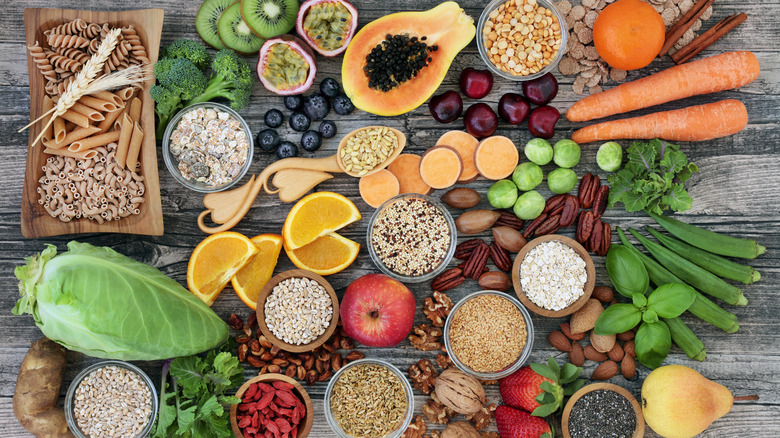How To Safely Treat Constipation While Pregnant
Most women expect to feel nauseous and gain some weight during pregnancy, but few are prepared to deal with constipation, hemorrhoids, and other related issues. These problems are largely due to the hormonal changes occurring in your body, explains a 2012 review published in the journal Canadian Family Physician. First of all, your progesterone levels go up and motilin levels decrease, which can slow digestion. The latter is a hormone that stimulates bowel movements. Second, the stool becomes dry because your colon absorbs more water than usual. Certain supplements — especially those containing iron or calcium — can further affect gastric motility.
About 11% to 38% of women experience constipation while pregnant, according to the above review. If left unaddressed, this problem can interfere with your daily life or cause complications, such as anal fissures and hemorrhoids. Over time, it may also affect your pelvic floor muscles, explains The Royal Hospital for Women. Less commonly, the stool can get stuck in the colon and cause fecal impaction, notes Canadian Family Physician.
Luckily, it's possible to prevent and treat pregnancy constipation without putting your baby at risk. Small changes, such as drinking more water and upping your fiber, can make all the difference.
Take these steps to relieve constipation during pregnancy
To start, try to get more fiber in your diet. This nutrient adds bulk to your stool, making it easier to pass. Dietary fiber also softens the stool, which may help prevent hemorrhoids. To reap the benefits, aim for at least 25 grams of fiber per day, suggests the Mayo Clinic. Fill up on whole grains, fresh or dried fruit, veggies, legumes, and other plant-based foods. You can also try psyllium husk, a natural prebiotic and stool softener. Simply mix it into a glass of water or add it to homemade meals to boost your fiber intake.
Johns Hopkins Medicine recommends mixing 1 cup of applesauce, 1 cup of prune juice, and 1 cup of oat or wheat bran. Freeze or refrigerate this mixture and take 1-2 tablespoons with a large cup of water each evening. If your symptoms don't subside within two weeks, take up to 4 tablespoons daily. Applesauce and oat bran are high in fiber and may help relieve constipation. Prune juice, on the other hand, contains sorbitol, a sugar alcohol with mild laxative effects, according to the Bladder and Bowel Community. Dried prunes might do the trick, too, as they contain both sorbitol and fiber.
Meanwhile, cut back on milk, junk food, red meat, white bread, and ready-made meals. These foods are low in fiber and hard to digest. Fill up on fiber, probiotic-rich foods, and healthy fats, says the Bladder and Bowel Community.
Squeeze more exercise into your schedule
When you're carrying a baby, you may be afraid to exercise, thinking that something might go wrong. However, skipping your workouts could do more harm than good. Women who stay active while pregnant have a 25% lower risk of gestational diabetes, high blood pressure, depression, and other health problems, reports the American College of Sports Medicine. What's more, they're likely to gain excess weight or give birth to a large baby. Staying active during pregnancy can also improve your fitness, prevent constipation, and reduce the need for a C-section, notes the American College of Obstetricians and Gynecologists (ACOG).
WebMD explains that regular exercise reduces bowel transit time and stimulates peristalsis — the movements made by the muscles in your digestive tract. As a result, it keeps you regular and may relieve constipation. The ACOG recommends at least 150 minutes of steady-state cardio per week, but you can also incorporate yoga or pilates into your workouts. Generally, it's best to avoid contact sports, hot yoga, skydiving, and activities that could cause you to fall, such as surfing and horseback riding.
If all else fails, consider using mineral oil or stool softeners to relieve constipation while pregnant. Metamucil and other bulk-forming laxatives are safe, too, according to 2012 clinical research published in Canadian Family Physician. Most laxatives can cause gas, bloating, and tummy pain, but they won't affect your pregnancy. Only use them when necessary and stick to the lowest effective dose to minimize side effects.



